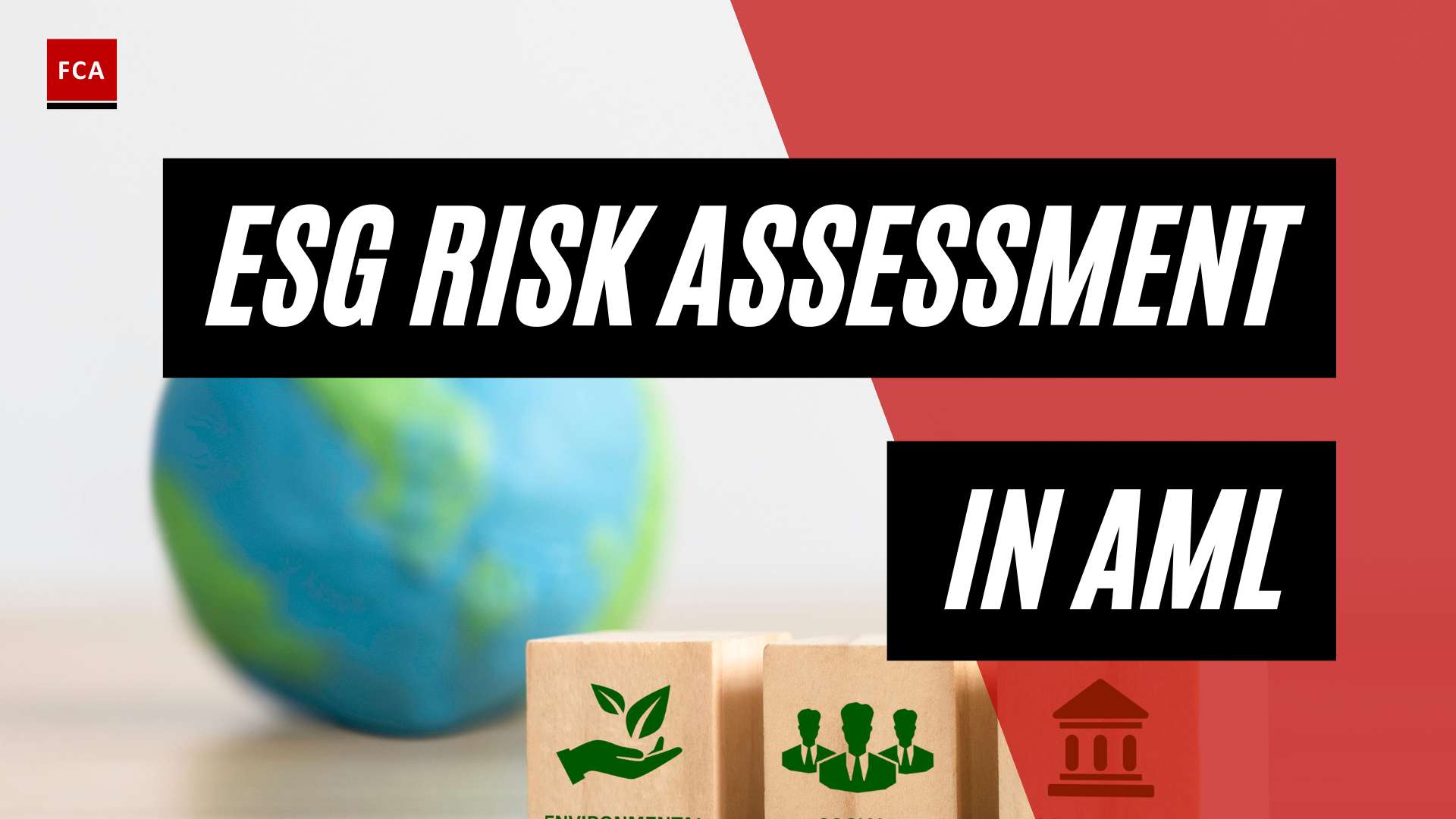AML in E-Commerce: Importance and Challenges
When it comes to e-commerce, it’s crucial to understand the importance of Anti-Money Laundering (AML) regulations and the challenges they pose. AML regulations are in place to prevent money laundering and the financing of illegal activities. They apply to various business sectors, including financial services, accountants, and even e-commerce businesses (VinciWorks).
Understanding AML Regulations for E-Commerce
For e-commerce businesses, complying with AML regulations is essential to maintain the integrity of the financial system and protect against financial crimes. AML regulations require businesses to implement robust measures to identify and mitigate the risk of money laundering and terrorist financing. This includes conducting due diligence on customers, monitoring transactions for suspicious activities, and reporting any suspicious transactions to the relevant authorities.
To ensure compliance, e-commerce businesses must have a comprehensive understanding of the specific AML regulations that apply to their operations. These regulations may vary by jurisdiction, but they typically require businesses to implement measures such as Know Your Customer (KYC) procedures, customer due diligence, and AML screening for transactions (aml compliance in e-commerce).
Consequences of Neglecting AML Training
Neglecting AML training for e-commerce staff can have severe consequences for businesses. Failure to comply with AML regulations can result in hefty fines, legal penalties, and damage to the reputation of the organization. The consequences are particularly significant for broker-dealers, as non-compliance with AML regulations can lead to regulatory actions and loss of clients’ trust.
By neglecting AML training, e-commerce businesses expose themselves to the risk of facilitating money laundering and other financial crimes. This not only jeopardizes their own operations but also contributes to the larger problem of global financial crime.
To avoid these consequences, it is crucial for e-commerce businesses to prioritize AML training for their staff. By providing comprehensive training on AML regulations, recognizing red flags for money laundering, and emphasizing the importance of reporting suspicious activities, businesses can empower their e-commerce staff to be vigilant and compliant in their day-to-day operations.
In the next section, we will explore the key components of AML training for e-commerce staff, including recognizing red flags for money laundering, customer due diligence (CDD) requirements, and reporting suspicious activities. Stay tuned to learn more about how AML training can enhance compliance in the e-commerce industry.
Key Components of AML Training for E-Commerce Staff
To ensure enhanced compliance with Anti-Money Laundering (AML) regulations in the e-commerce industry, it is crucial to provide comprehensive training to staff members. AML training equips e-commerce professionals with the necessary knowledge and skills to identify and prevent money laundering activities. Key components of AML training for e-commerce staff include recognizing red flags for money laundering, understanding customer due diligence (CDD) requirements, and reporting suspicious activities.
Recognizing Red Flags for Money Laundering
AML training should focus on providing e-commerce staff with the ability to recognize red flags that may indicate potential money laundering activities. These red flags can include:
- Large transactions without corresponding sales or refunds.
- Multiple transactions at different locations in quick succession.
- Unusual fluctuations in transaction amounts.
By training staff members to identify these red flags, e-commerce businesses can proactively detect and mitigate money laundering risks. Implementing effective AML screening measures within e-commerce platforms can also aid in identifying suspicious transactions.
Customer Due Diligence (CDD) Requirements
Another crucial component of AML training for e-commerce staff is understanding the importance of customer due diligence (CDD) requirements. CDD involves verifying the identity of customers, assessing the nature of their business relationships, and monitoring their transactions. Training should cover topics such as:
- Conducting identity verification checks.
- Assessing the risk profile of customers.
- Keeping accurate and up-to-date customer records.
By adhering to CDD requirements, e-commerce businesses can establish the necessary safeguards to prevent money laundering and terrorist financing activities. Implementing Know Your Customer (KYC) procedures can help in achieving effective customer due diligence.
Reporting Suspicious Activities
AML training should emphasize the importance of reporting suspicious activities to the relevant authorities. E-commerce staff should be trained on the procedures for reporting any transactions or behaviors that raise suspicion. This includes:
- Understanding the reporting obligations under applicable AML regulations.
- Knowing the appropriate channels and authorities to report suspicious activities.
- Documenting and retaining relevant transaction records and supporting evidence.
By promptly reporting suspicious activities, e-commerce businesses contribute to the collective effort in combating money laundering and maintaining the integrity of the financial system. It is important to stay up to date with the latest AML regulations to ensure compliance.
Through comprehensive AML training that covers recognizing red flags, understanding CDD requirements, and reporting suspicious activities, e-commerce staff can play a pivotal role in enhancing compliance and preventing money laundering within the industry. This training not only strengthens online transaction security but also builds a culture of trust and compliance within e-commerce businesses.
Benefits of AML Training for E-Commerce Staff
Implementing effective AML training programs for e-commerce staff offers numerous benefits, including enhancing online transaction security and building a culture of trust and compliance.
Enhancing Online Transaction Security
AML training equips e-commerce staff with the knowledge and skills necessary to identify and mitigate potential risks associated with money laundering and financial crimes. By understanding red flags and suspicious activities, employees can take proactive measures to prevent illicit transactions and protect the integrity of online transactions.
Through AML training, staff members learn about the various techniques used by money launderers to exploit e-commerce platforms. This knowledge enables them to recognize unusual patterns, suspicious behaviors, or transactions that deviate from the norm. By promptly identifying and reporting such activities, e-commerce staff contribute to the prevention and detection of money laundering, thus enhancing the overall security of online transactions.
Building Trust and Compliance Culture
Companies that provide AML training to their e-commerce staff demonstrate a commitment to regulatory compliance and ethical business practices, enhancing trust with customers and business partners. Customers are more likely to engage with e-commerce platforms that prioritize security and exhibit a strong compliance culture.
By investing in AML training, e-commerce businesses send a clear message that they are serious about combating financial crimes. This commitment to compliance helps build a trustworthy reputation, attracting customers who value security and integrity in their online transactions. Additionally, business partners and stakeholders are more likely to engage with e-commerce platforms that prioritize AML training, as it reduces the risk of associating with entities involved in illicit activities.
In addition to meeting regulatory requirements, AML training fosters a culture of vigilance and integrity within the organization. By educating e-commerce staff on the importance of AML practices, businesses create an environment where financial crimes are less likely to occur. This culture of compliance and integrity helps safeguard the reputation and credibility of the company, further strengthening trust with customers and partners.
By prioritizing AML training for e-commerce staff, businesses can enhance online transaction security and foster a culture of trust and compliance. Through increased knowledge and awareness, employees become proactive in identifying and preventing money laundering activities, ultimately contributing to a safer and more secure e-commerce environment.
Emerging Trends and Regulatory Requirements
As the landscape of Anti-Money Laundering (AML) continues to evolve, staying up to date with emerging trends and regulatory requirements is crucial for e-commerce businesses. In this section, we will explore three key aspects: increased scrutiny in the European Union, risk assessments and AML policies, and ongoing training and regulatory updates.
Increased Scrutiny in the European Union
E-commerce platforms operating within the European Union (EU) are facing heightened scrutiny when it comes to AML compliance, particularly with the implementation of the 5th AML Directive. This directive aims to strengthen the EU’s AML framework and enhance the fight against money laundering and terrorism financing. As a result, e-commerce platforms are required to adhere to strict AML regulations and face increased scrutiny from regulatory bodies (Financial Crime Academy).
To ensure compliance, e-commerce businesses in the EU must conduct thorough risk assessments, implement robust AML policies and procedures, and perform customer due diligence. By doing so, they can effectively mitigate the risks associated with money laundering and terrorism financing while maintaining the integrity of their platforms.
Risk Assessments and AML Policies
A vital component of AML training for e-commerce staff is understanding risk assessments and AML policies. E-commerce businesses must identify and assess the risks they face in terms of money laundering and terrorism financing. This involves evaluating their customer base, transaction volume, geographic reach, and other relevant factors. The insights gained from risk assessments enable businesses to develop tailored AML policies that address specific risks and vulnerabilities.
AML policies serve as a roadmap for e-commerce staff, outlining the procedures they need to follow to prevent, detect, and report suspicious activities. These policies should be comprehensive, covering various aspects such as customer due diligence, transaction monitoring, and reporting obligations. By providing clear guidelines, businesses can ensure that their staff understands their roles and responsibilities in combating money laundering and terrorism financing.
Ongoing Training and Regulatory Updates
The AML landscape is constantly evolving, with regulatory requirements and best practices regularly being updated. It’s essential for e-commerce businesses to provide ongoing AML training to their staff to keep them informed and up to date with the latest developments. This training should cover changes in regulations, emerging trends, and new techniques used by money launderers.
By providing regular training sessions, e-commerce businesses can reinforce the importance of AML compliance and keep their staff equipped with the knowledge and skills needed to identify and address potential risks. Training can also serve as a platform for discussing real-life case studies, sharing best practices, and fostering a culture of compliance within the organization.
To ensure the effectiveness of ongoing training, e-commerce businesses should establish mechanisms for monitoring and assessing the AML knowledge and performance of their staff. This can be done through periodic assessments, quizzes, or interactive workshops. By continuously evaluating the effectiveness of the training program, businesses can identify areas for improvement and implement necessary updates to enhance their AML efforts.
Staying informed about emerging trends, conducting risk assessments, and providing ongoing training are essential steps for e-commerce businesses to strengthen their AML compliance. By proactively addressing the evolving regulatory landscape, businesses can protect themselves from financial crime risks, build trust with customers, and contribute to the overall integrity of the e-commerce industry.
Implementing Effective AML Training Programs
To ensure the effectiveness of anti-money laundering (AML) efforts in the e-commerce industry, implementing comprehensive AML training programs for staff is crucial. These programs equip employees with the knowledge and skills necessary to identify and mitigate money laundering and terrorism financing risks. Two key components of effective AML training programs for e-commerce staff are tailoring the training to specific roles and continuous monitoring and assessment.
Tailoring Training to Specific Roles
An effective AML training program should be tailored to the specific roles and responsibilities of e-commerce staff within the organization. Different departments and functions may have varying levels of exposure to potential money laundering risks. By customizing the training content to address the unique challenges and requirements of each role, employees can develop a deeper understanding of their AML obligations and how to fulfill them effectively.
For example, customer service representatives may benefit from training focused on recognizing red flags for money laundering during customer interactions, such as large transactions without corresponding sales or refunds, multiple transactions at different locations in quick succession, and unusual fluctuations in transaction amounts (Finance Strategists). On the other hand, employees involved in transaction monitoring or fraud detection may require more advanced training on AML screening techniques and regulatory requirements specific to e-commerce platforms.
By tailoring the training to specific roles, organizations can ensure that their e-commerce staff is well-equipped to identify and report suspicious activities, thereby strengthening their overall AML compliance efforts.
Continuous Monitoring and Assessment
AML training should not be a one-time event; it should be an ongoing process. As regulatory obligations, money laundering techniques, and e-commerce practices evolve, it is vital to provide regular updates and refreshers to keep e-commerce staff up to date. Regular training sessions and refresher courses help employees stay informed about emerging trends and regulatory requirements (Finance Strategists). This continuous monitoring and assessment ensure that employees remain knowledgeable and well-prepared to address new challenges in the ever-changing landscape of AML compliance.
Organizations should also implement mechanisms to assess the effectiveness of the AML training programs. This can be done through quizzes, case studies, or practical exercises that allow employees to apply their knowledge and skills. Regular assessments help identify any gaps in understanding or areas that require additional training, allowing for targeted interventions to enhance the overall effectiveness of the AML training programs.
By continuously monitoring and assessing the AML training programs, organizations can ensure that e-commerce staff are equipped with the necessary knowledge and skills to effectively combat money laundering and contribute to a robust compliance culture.
In summary, implementing effective AML training programs for e-commerce staff is vital in ensuring compliance with AML regulations and mitigating money laundering risks. By tailoring the training to specific roles and continuously monitoring and assessing the effectiveness of the programs, organizations can empower their e-commerce staff to play an active role in combating money laundering and maintaining a strong AML compliance framework.








